Known as the “Kate Bush of early music” and “the Jimi Hendrix of the baroque violin,” the dazzling Spanish violinist Lina Tur Bonet makes her Tafelmusik debut with Fantasticus: Birth of the Baroque on February 2, 3 & 4, 2024. Just ahead of her arrival in Toronto, we caught up with Lina to chat about the art of improvisation, her penchant for multidisciplinary collaborations, and what inspires her most as an artist.
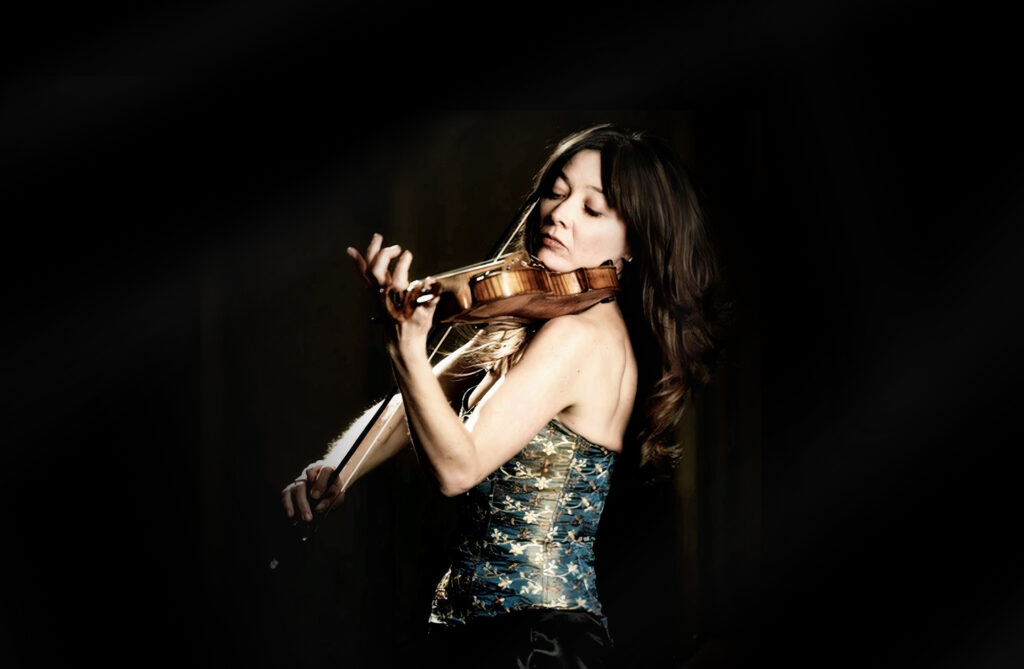
How did music first enter your life?
I don’t even remember a first moment—music was always there. My father was a clarinettist and music teacher, and I learned how to read music before the age of three, when I also began ballet. Singing and dancing were completely natural for me.
When did you first discover your affinity for baroque violin?
I was studying for my Master’s degree on modern violin and had the opportunity to play a baroque violin and bow from Vienna University. As soon as I played it, something inexplicable moved inside me—I will never forget the feeling! Soon afterwards, I played Bach’s St John Passion, my first performance on baroque violin. Then I knew that I wanted to spend my life doing exactly that. A few weeks later, someone who knew me very well heard me play and immediately said, “you’ve found your passion!”
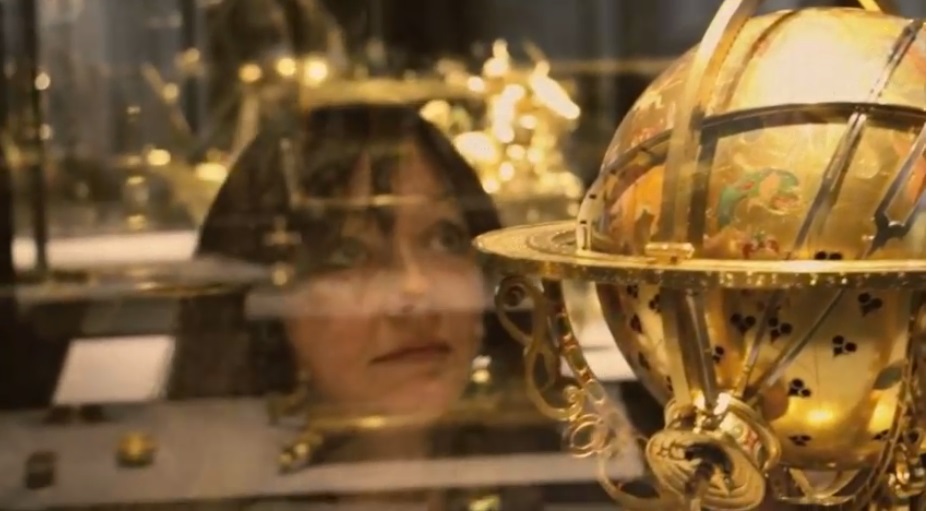
Your ensemble MUSIca ALcheMIca performs in unusual venues in collaboration with video artists, actors, dancers, filmmakers, and puppeteers. Can you tell us more about that?
The deep connection I experienced while dancing—long before starting the violin—made me very sensitive to many art forms, I guess. After hearing me play in a competition, an old professor strongly suggested that I spend time with other artists. I was quite moved because he was able to recognize my true nature! Coming from a small town, it wasn’t easy for me, but I longed for it. Later, when I was living in Vienna, I spent most of my time with arts students. They were much more interesting to me, somehow, than my musical colleagues were back then!
I wish I had the time to pursue my other art interests, but the violin is too jealous and possessive. So I collaborate on these projects and share with artists I admire because it’s a basic need for my soul. Those projects are as essential for me as food is. They represent another path for communication.
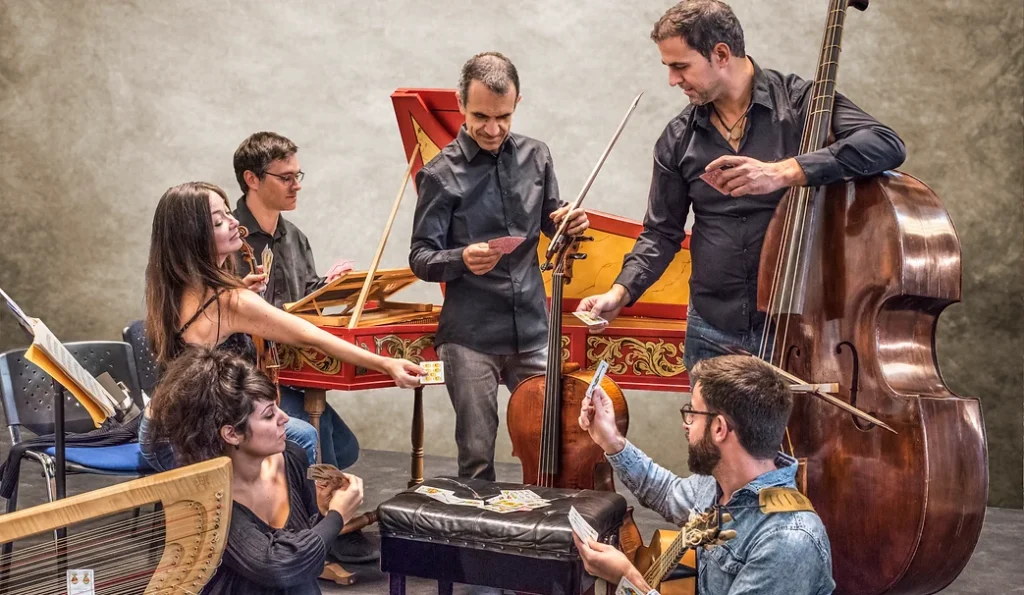
You have been described as the “Kate Bush of early music” (conductor Paul Kildea) and “the Jimi Hendrix of the baroque violin” (Musicweb International). Why do you think you are often compared with contemporary pop icons?
Ha! I have no idea why. But I like it very much because they compare me to artists I really admire! It may be because I never completely fit into the classical scene, or maybe it’s because I never followed the expected path for a classical violinist.
Though I was disciplined and got very positive results on my music exams, I always chose another path rather than the typical conservatory one. I still remember my (very famous) professor saying, “Why do you want to learn the baroque violin now? You play modern violin very well, you don’t need that! Audition for the Vienna Philharmonic and forget about baroque!”
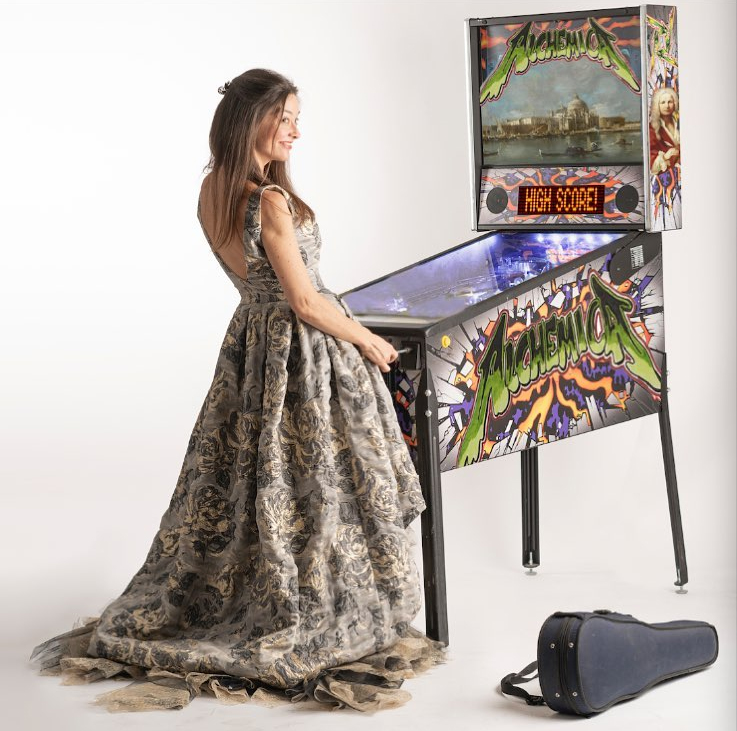
If music had not been possible as a career, what would you most likely be doing now?
I’ve had several problems in my life that took me away from playing for a while, and I have often asked myself that question, unfortunately. And even if there are so many things I would love to do, like design, fashion, set design, painting, or even studying math, philosophy, or astronomy, I have always ended up with the same answer: playing violin! Because music can contain all of that.
In Fantasticus, you’ll be exploring some hidden treasures from the beginning of the baroque era. How important is improvisation in this repertoire?
Improvisation is for me the centre of this music, it is the seed from which it all blooms. It is not only about improvisation, as those composers wanted to leave us the written music. The score is just the frame, the proportion and the creation, like a letter they left to us so many centuries ago. Anyway, it has to sound as if played for the first time and from that free spirit. This is exactly what fascinates me about it.
Improvisation can be challenging for classical musicians because this skill is often ignored in classical music schools, which prioritize other aspects of the performance. However, improvisation is the seed of every folk, jazz, or pop musician. And don’t even ask about how much risk I was allowed to take as student at the best music universities, where just one mistake was unacceptable!
But without mistakes, without risk, nothing can develop. Of course, I don’t want to incite chaos! I am very disciplined indeed and my approach is much more structured than what it appears to be. All the wisdom you gather while studying, which has to be as deep as possible, must be forgotten in the moment of the musical act itself in order for it to be real, honest, and alive. Being courageous and taking risks is necessary, and when there’s wisdom under that bravery, then real music happens.
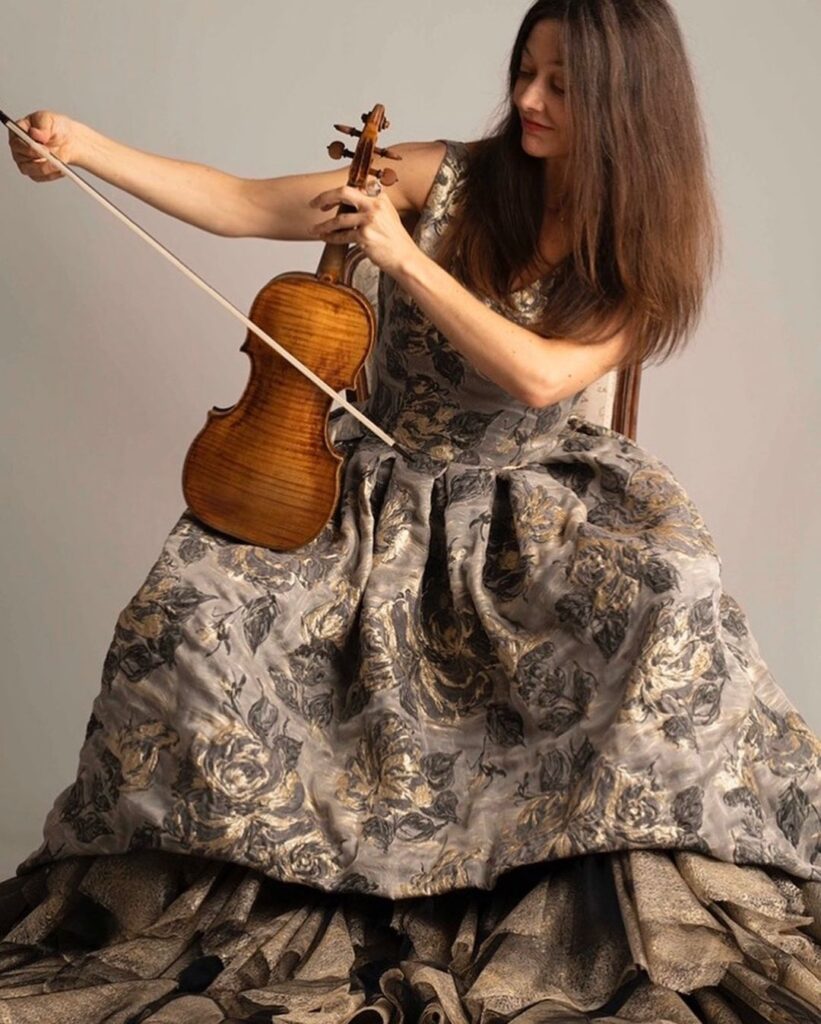
The early 17th century was a time of great change in Europe, bringing radical developments in technology, science, trade—and of course, music. How does the repertoire you’ll be performing with Tafelmusik reflect the Zeitgeist of the 1600s?
It’s reflected in all senses: humans were going through a very difficult time in the 17th century because of adversity, wars, epidemics, corrupt politicians, hunger, and peasant revolts. But often it’s in the worst moments that we give our best, which is precisely what happened. The first telescopes, the first microscopes, our understanding of electricity and many other discoveries began at that time, because humans needed to use all their creativity and ingenuity in order to survive. You can hear exactly that quality in this music, as well as Monteverdi’s Seconda Pratica: music became the vehicle to express deep feelings.
What are the upcoming projects that you are most excited about?
I am very excited about my next recording, my 19th solo album! It’s devoted to The Four Seasons by two contrasting composers: Vivaldi and Astor Piazzola. The album is an extremely creative collaboration with amazing musicians, incorporating both baroque and tango styles.
I also look forward to recording and playing across Europe, including at the Salzburg Festival, under the baton of Jordi Savall once again, and I will direct the Styriarte Orchestra in Austria twice. I’ll perform Vivaldi double concertos with Enrico Onofri and will tour across Australia with my group MUSIca ALcheMIca. I will also record the world premiere of the Wranitzky violin concertos in Prague, and will play concertos by Mozart, Mendelssohn, and Brahms later this year.
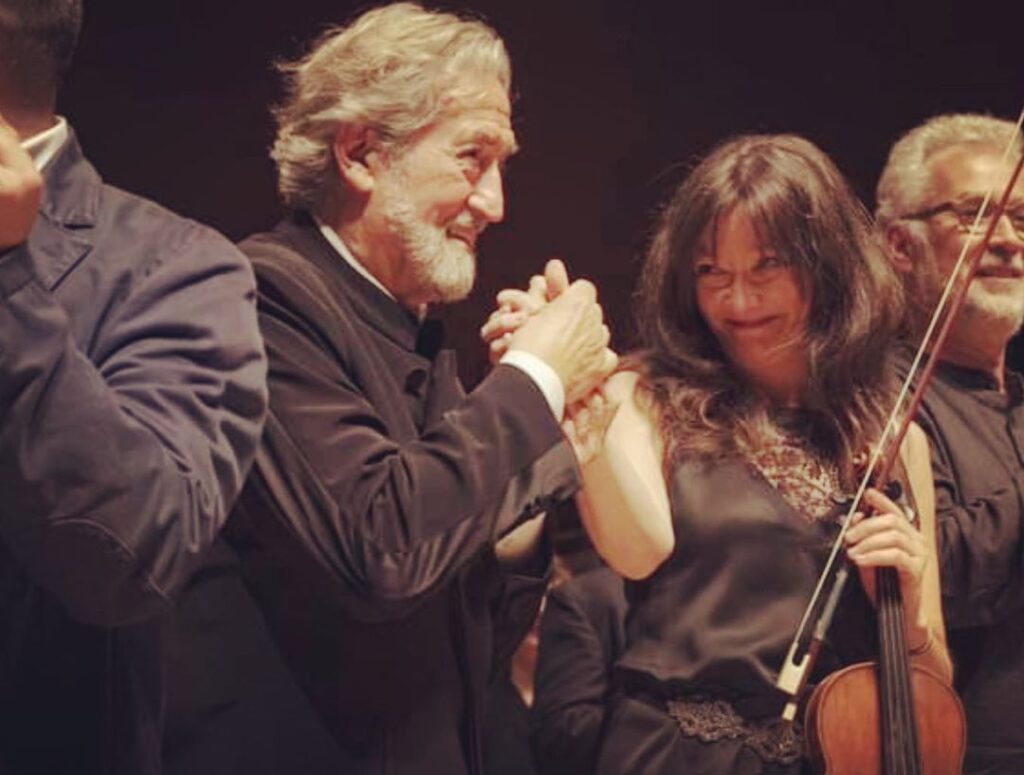
Appearing with Tafelmusik brings me deep joy, since I’ve known about the group for years and couldn’t have been happier to receive the invitation. I would love to share this inspiring quote from Friedrich Nietzsche with Toronto audiences: “We should learn to live with the same seriousness with which children play.”
